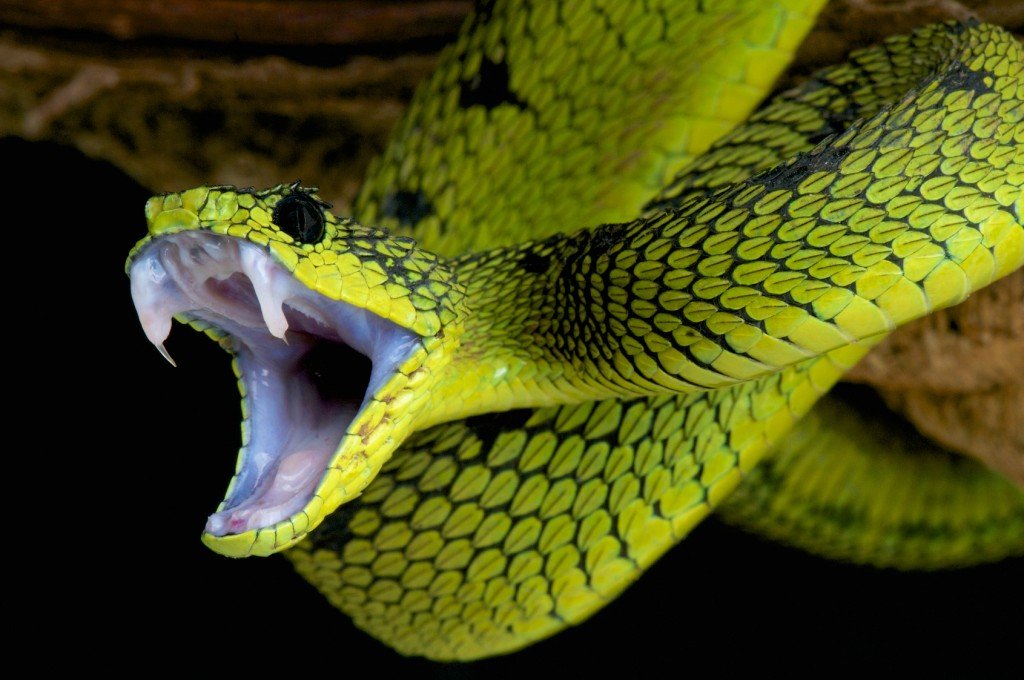Description
BUY DENDROASPIS ANGUSTICEPS VENOM EASTERN GREEN MAMBA (DENDROASPIS ANGUSTICEPS) SNAKE VENOM
BUY DENDROASPIS ANGUSTICEPS VENOM green mamba snake venom for sale. A toxicovenomic study was performed on the venom of the green mamba, Dendroaspis angusticeps. Forty-two different proteins were identified in the venom of D. angusticeps, in addition to the nucleoside adenosine. The most abundant proteins belong to the three-finger toxin (3FTx) (69.2%) and the Kunitz-type proteinase inhibitor (16.3%) families. Several sub-subfamilies of the 3FTxs were identified, such as Orphan Group XI (Toxin F-VIII), acetylcholinesterase inhibitors (fasciculins), and aminergic toxins (muscarinic toxins, synergistic-like toxins, and adrenergic toxins). Remarkably, no α-neurotoxins were identified. Proteins of the Kunitz-type proteinase inhibitor family include dendrotoxins.
Toxicological screening revealed a lack of lethal activity in all RP-HPLC fractions, except one, at the doses tested. Thus, the overall toxicity depends on the synergistic action of various types of proteins, such as dendrotoxins, fasciculins, and probably other synergistically-acting toxins. Polyspecific antivenoms manufactured in South Africa and India were effective in the neutralization of venom-induced lethality. These antivenoms also showed a pattern of broad immunorecognition of the different HPLC fractions by ELISA and immunoprecipitated the crude venom by gel immunodiffusion. The synergistic mechanism of toxicity constitutes a challenge for the development of effective recombinant antibodies, as it requires the identification of the most relevant synergistic toxins.
Green Mamba Venom (Dendroaspis Angusticeps), also known as the common mamba, East African green mamba, green mamba, or white-mouthed mamba, is a large, tree-dwelling, highly venomous snake species of the mamba genus Dendroaspis.
Green Mamba Venom (Dendroaspis Angusticeps) mostly inhabits the coastal regions of southern East Africa. Adult females average approximately 2.0 metres (6.6 ft) in length, and males are slightly smaller. Eastern green mambas prey on birds, eggs, bats, and rodents such as mice, rats, and gerbils. They are shy and elusive snakes which are rarely seen, making them somewhat unusual among mambas, and elapids in general. This elusiveness is usually attributed to the species’ green colouration which blends with its environment, and its arboreal lifestyle. However, eastern green mambas have also been observed to use “sit-and-wait” or ambush predation like many vipers, unlike the active foraging style typical of other elapids, which may be a factor in the rarity of sightings.
Green Mamba Venom (Dendroaspis Angusticeps), is a large mostly arboreal and highly venomous snake found in the coastal regions of southern East Africa. Their range stretches from the Eastern Cape in South Africa through Kenya, Mozambique, Tanzania, Eastern Zimbabwe and Southern Malawi.
Green Mamba Venom (Dendroaspis Angusticeps) is mostly arboreal, meaning it lives in trees, only on rare occasions will it descend to the ground to forage, drink or bask in the sun. Because of its coloration, it’s very well camouflaged in trees or bushes, for that reason it prefers relatively dense vegetation and is rarely found in open terrain
BUY DENDROASPIS ANGUSTICEPS VENOM green mamba snake venom for sale. A toxicovenomic study was performed on the venom of the green mamba, Dendroaspis angusticeps. Forty-two different proteins were identified in the venom of D. angusticeps, in addition to the nucleoside adenosine. The most abundant proteins belong to the three-finger toxin (3FTx) (69.2%) and the Kunitz-type proteinase inhibitor (16.3%) families. Several sub-subfamilies of the 3FTxs were identified, such as Orphan Group XI (Toxin F-VIII), acetylcholinesterase inhibitors (fasciculins), and aminergic toxins (muscarinic toxins, synergistic-like toxins, and adrenergic toxins). Remarkably, no α-neurotoxins were identified. Proteins of the Kunitz-type proteinase inhibitor family include dendrotoxins.
Toxicological screening revealed a lack of lethal activity in all RP-HPLC fractions, except one, at the doses tested. Thus, the overall toxicity depends on the synergistic action of various types of proteins, such as dendrotoxins, fasciculins, and probably other synergistically-acting toxins. Polyspecific antivenoms manufactured in South Africa and India were effective in the neutralization of venom-induced lethality. These antivenoms also showed a pattern of broad immunorecognition of the different HPLC fractions by ELISA and immunoprecipitated the crude venom by gel immunodiffusion. The synergistic mechanism of toxicity constitutes a challenge for the development of effective recombinant antibodies, as it requires the identification of the most relevant synergistic toxins.
Green Mamba Venom (Dendroaspis Angusticeps), also known as the common mamba, East African green mamba, green mamba, or white-mouthed mamba, is a large, tree-dwelling, highly venomous snake species of the mamba genus Dendroaspis.
Green Mamba Venom (Dendroaspis Angusticeps) mostly inhabits the coastal regions of southern East Africa. Adult females average approximately 2.0 metres (6.6 ft) in length, and males are slightly smaller. Eastern green mambas prey on birds, eggs, bats, and rodents such as mice, rats, and gerbils. They are shy and elusive snakes which are rarely seen, making them somewhat unusual among mambas, and elapids in general. This elusiveness is usually attributed to the species’ green colouration which blends with its environment, and its arboreal lifestyle. However, eastern green mambas have also been observed to use “sit-and-wait” or ambush predation like many vipers, unlike the active foraging style typical of other elapids, which may be a factor in the rarity of sightings.
Green Mamba Venom (Dendroaspis Angusticeps), is a large mostly arboreal and highly venomous snake found in the coastal regions of southern East Africa. Their range stretches from the Eastern Cape in South Africa through Kenya, Mozambique, Tanzania, Eastern Zimbabwe and Southern Malawi.
Green Mamba Venom (Dendroaspis Angusticeps) is mostly arboreal, meaning it lives in trees, only on rare occasions will it descend to the ground to forage, drink or bask in the sun. Because of its coloration, it’s very well camouflaged in trees or bushes, for that reason it prefers relatively dense vegetation and is rarely found in open terrain






